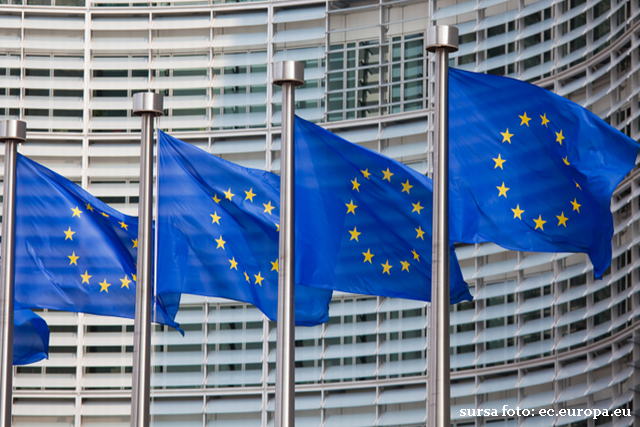The EU Gathers Ranks
European Commission President Jean-Claude Junker said that the European Commission has a duty to protect European businesses, ahead of applying the blocking status law, meant to meet the effects of the US pulling out of the Iran nuclear deal.

Corina Cristea, 01.06.2018, 14:21
This is a European rule dating back to 1996, when Europe
went around an embargo against Cuba, a disagreement that was eventually settled
at a political level.
This law is back at the forefront as the US decided to
pull out of the Iran nuclear deal, and has to be adjusted by August 6, when
Washington starts applying sanctions. This set of blocking status rules allows
European companies and courts to avoid third party sanctions, and stipulates
that no foreign court rules need apply to EU countries. It is about protecting
international companies where there is European involvement in the face of
decisions from the American administration, as explained by Euro MP Iuliu
Winkler.
Iuliu Winkler: The
United States has parted with multilateralism. The US is in a process of
attacking the World Trade Organisation. They are discontent with the
Organisation, they are discontent with the multilateral trade agreements into
which, according to president Trump, the US has been duped. Now the US is
pulling out of an accord that, in my opinion, is crucial for the Middle East.
This assault on multilateralism is the expression of the lone wolf tactics that
President Trump follows. Multilateralism is essential for Europe and the EU
both for trade and the economy, as well as for geopolitical and strategic
international relations.
Brussels has also decided to allow the European
Investment Bank to facilitate European investment in Iran. The head of European
diplomacy, Federica Mogherini, said that there was no alternative to the
agreement with Iran, in reply to Secretary of State Mike Pompeo, who invoked 12
drastic conditions for a new accord with Tehran, which limited the Iranian
nuclear programme in exchange for lifting sanctions.
German Chancellor
Angela Merkel said that no one in the EU believes that the Iran deal is
perfect, but that it is needed, and there is a need to continue negotiating
with Iran on various other themes, including that of ballistic missiles.
Analysing the EU reaction to the decision made by the White House, Adrian
Mitroi, professor of international relations with the Bucharest School of
Economics, said that Europe’s swing between trade and global strategy is very
complicated.
According to
him, we are in a very interesting, and possibly critical area, an area in which
the pressure is on the price of oil, which on short term would probably result
in a slight economic slowdown. One should not forget in this equation the
dependence of Europe on Russian natural gas, and the fact that Washington is
against these trade relations. We asked Adrian Mitroi if the EU may hope to
become one of the powerhouses of the planet alongside the US, Russia, and
China.
Adrian Mitroi:
Honestly, I don’t think so. The EU has lost a lot in terms of foreign policy.
Europe is not too active in foreign policy terms. The American continent has
managed quite well, the EU does not have a single treasury, which means that
policies are slightly offset. Here we are more sensitive to a stronger dollar or
higher interest rates on the dollar. The fact that we are in a full process of
reforming the EU, and I include here the economic part, a common treasury, all
these good things that would have granted us economic strength, are slowing us
down.
However,
according to Adrian Mitroi, Europe has the great advantage of having more
things that tie people together than the other way around.






























